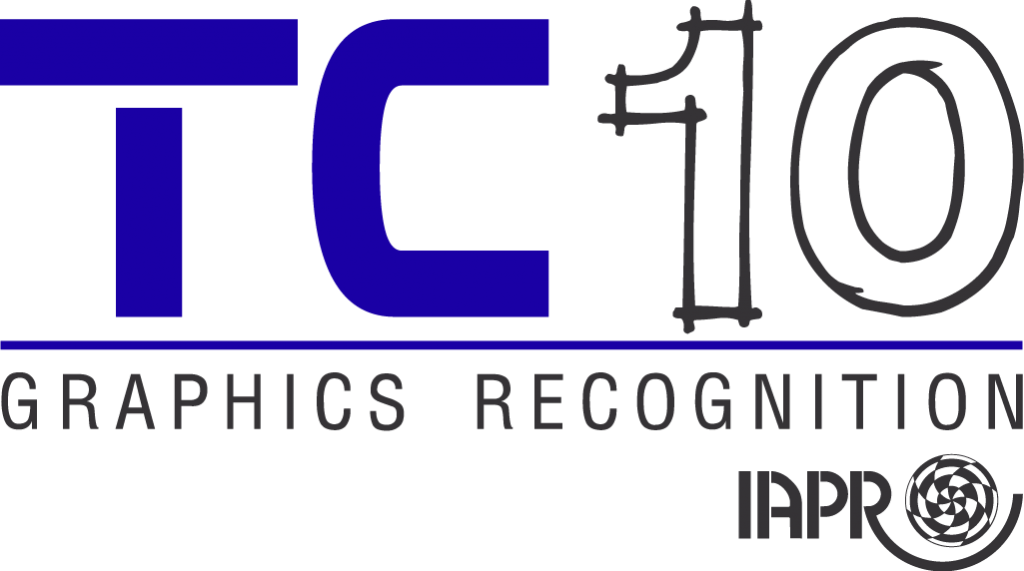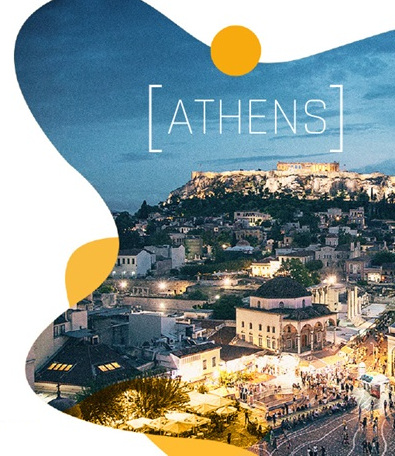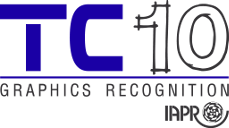
Welcome to the August edition of the TC10 newsletter.
In few days will start our main event of the year, ICDAR 2024 in Athens, Greece. Six workshops including DAS and MANPU will be held on Friday and Saturday. Three tutorials will take place Sunday and the main conference will run from Monday to Wednesday, including four keynote speakers, orals and many competition and poster sessions. This year’s best young investigator award goes to… Dr. Vincent Christlein congratulations!
This issue also includes call for papers for the IJDAR journal
track of ICDAR 2025 and the open call for organizing next DAR events.
Looking forward to seeing you in Athens,
Christophe Rigaud
IAPR-TC10 Communications Officer

Table of content:
1) Upcoming deadlines and events
2) ICDAR 2024 Young Investigator Award – nomination
3) ICDAR 2024 Doctoral Consortium
4) ICDAR 2024 MANPU workshop – news
5) ICDAR 2024 DAS workshop – repost
6) ICDAR 2025 Call for Paper
7) ICDAR-IJDAR 2025 Journal Track – Call for Paper
8) Open Call for Organizing DAR Events
9) IJDAR paper alert
10) Job offers – repost
Call for contributions: feel free to contribute to TC10 newsletters, by sending any relevant news, event, notice, open position, dataset or link to us on iapr.tc10[at]gmail.com
Join us! If you are not already a member of the TC10 community, please consider joining the TC10 mailing list by clicking the join us button on the main page the website.
1) Upcoming deadlines and events
2024
- Deadlines
- Nov 15, ICDAR 2025 Journal track paper submission deadline
- Events:
- August 30, workshop MANPU 2024, Athens, Greece
- August 30-31, workshop DAS 2024, Athens, Greece
- August 30-4 Sep., conference ICDAR 2024, Athens, Greece
- December 1-5, conference ICPR 2024, Kolkata, India
2025 and later
- Deadlines
- Feb 7 abstract submission deadline, ICDAR 2025
- Events
- Sep 17-21, conference ICDAR 2025, Wuhan, China
2) IAPR/ICDAR Young Investigator Award – nomination
The IAPR/ICDAR Award Program is an established program designed to recognize individuals who have made outstanding contributions to the field of Document Analysis and Recognition in one or more of the following areas:
- Research
- Training of students
- Research/Industry interaction
- Service to the community
The IAPR/ICDAR Young Investigator Award is presented biannually in even years. Recipients need to be less than 40 years old at the time the award is made.
The recipient of the award 2024 is:
Dr. Vincent Christlein, for outstanding contributions to handwriting recognition applied to forensics and historical documents.
Congratulations!
The award will be presented at ICDAR 2024, followed by a keynote speech of Dr. Christlein.
Jean-Christophe Burie and Andreas Fischer
TC10 and TC11 Chairs
3) ICDAR 2024 Doctoral consortium
In 2011, the first Doctoral Consortium in the Document Analysis community was organized in conjunction with the International Conference on Document Analysis and Recognition (ICDAR). This has led to successful successor events at ICDAR 2013, ICDAR 2015, ICDAR 2017, ICDAR 2019, ICDAR 2021, and ICDAR 2023. The tradition of having a Doctoral Consortium as a satelite event to the ICDAR main conference will further be continued at ICDAR 2024 in Athens, Greece.
The goal of the ICDAR 2024 Doctoral Consortium is to create an opportunity for PhD students to test their research ideas, present their current progress and future plans, and receive constructive criticism and insights related to their future work and career perspectives. Students will have the opportunity to present an overview of their research plan during the poster sessions of the main conference. In addition, a mentor (a senior researcher who is active in the field) will be assigned to each student to provide individual feedback.
Participation in the ICDAR 2024 Doctoral Consortium will be limited to 25 students. Prospective participants are encouraged to submit their application by June 24, 2024. The Doctoral Consortium Chairs will then review all applications received. Preference will be given to students who are at a stage in their studies most likely to benefit (i.e., they have identified a research direction and published some initial results, but the thesis is not yet set in stone).
Participation to the Doctoral Consortium will be free for all accepted students. There will be no extra registration fees.
The ICDAR 2024 Doctoral Consortium will take place during the poster sessions of the main conference, i.e., on Monday, September 2, and Tuesday, September 3.
4) ICDAR 2024 MANPU workshop – news
The 6th International Workshop on coMics ANalysis, Processing and Understanding Friday, August 30, 2024 Grand Hyatt Hotel, Athens, Greece https://manpu2024.imlab.jp/#program Organized in conjunction with ICDAR2024 The 18th International Conference on Document Analysis and Recognition, Grand Hyatt Hotel, Athens Greece, August 30 - September 4, 2024
News: keynote speech, August 30 at 9:00am
The patterns of global comics
Neil Cohn (Tilburg University)
While sequential images are pervasive in society, from picture books to instruction manuals and storyboards, they appear most complex in comics around the world. Over the past two decades, an increasing focus on corpus analysis has begun to allow greater insights into how comics are structured and comprehended, across work blending manual and computational annotations. Here I will focus on the insights from two corpus projects: the Visual Language Research Corpus (360 comics, 9 countries, 48,000 panels) and the TINTIN Corpus (1,030 comics, 144 countries/territories, 76,000 panels). This analysis will highlight how the structures of comics change over time while interacting with the culture and languages of their authors, revealing distinctive “visual languages” that balance diverse and universal features, consistent with other linguistic systems.
https://manpu2024.imlab.jp/#keynote
5) ICDAR 2024 DAS workshop
The 16th International Workshop Document Analysis Systems Friday, August 30 and Saturday, August 31, 2024 https://das2024.seecs.edu.pk/ Organized in conjunction with ICDAR2024 The 18th International Conference on Document Analysis and Recognition, Grand Hyatt Hotel, Athens Greece, August 30 - September 4, 2024
Document Analysis System (DAS) will be organized as a satellite workshop in conjunction with ICDAR 2024. Join us at DAS 2024 to explore the cutting-edge of document analysis technologies! This workshop is an unparalleled opportunity for researchers, practitioners, and technology enthusiasts to engage in a forward-looking discourse on document analysis systems’ evolution and future directions.
For more details, please have a look at the following link
https://das2024.seecs.edu.pk/submission.html
We are looking forward to your excellent contributions!
DAS Organizing Committee
6) ICDAR 2025 Call for Paper
September 17-21, 2025 Wuhan, Hubei, China https://www.icdar2025.com/
ICDAR is the premier event for scientists and practitioners involved with document analysis and
recognition, a field of growing importance in our current age of digital transition. The 19th
edition of this flagship conference will beheld in Wuhan, September 17-21, 2025.
Conference Paper Submissions
There is both a standard conference paper track and a journal track at ICDAR 2025; details regarding the journal track maybe found in a separate Call for Papers.
Reviewing for conference papers will be double blind. Authors should not include their names, affiliations, or acknowledgements in submitted manuscripts, and should ensure that their identity is not revealed indirectly by citing their earlier work in the third person.
Papers maybe up to 15 pages long (including references) in Springer Lecture Notes in Computer Science (LNCS) format. Detailed submission instructions for authors can be found on the conference website (https://www.icdar2025.com/home).
Important Dates
Feb 7, 2025: Conference Title & Abstract submission deadline
Feb 21, 2025: Conference full paper upload and editing closed
Apr 11, 2025: Conference reviews due
Apr 18, 2025: Conference rebuttal due
Apr 25, 2025: Conference paper acceptance notation
May 16, 2025: Camera-Ready and final notation
Publication: Springer Lecture Notes in Computer Science
The conference proceedings will be published as part of the Springer Lecture Notes in Computer Science (LNCS) series. Accepted papers will be freely available through SpringerLink from the conference website for one year after publication, and will later be freely available through SpringerLink four years after publication.
Contact:
Xu-Cheng Yin <xuchengyin@ustb.edu.cn>
Dimosthenis Karatzas <dimos@cvc.uab.es>
Daniel Lopresti <lopresti@cse.lehigh.edu>
pc-chairs@icdar2025.org
7) 2025 ICDAR-IJDAR Journal Track – Call for Paper
https://www.icdar2025.com/submission/journal-track https://link.springer.com/journal/10032/updates/27412600
Following a feature of ICDAR2019 through ICDAR2024, ICDAR 2025 will again include the option of a journal track that offers the rapid turnaround and dissemination times of a conference while providing the paper length, scientific rigor, and careful review process of an archival journal.
The ICDAR-IJDAR journal track invites high-quality submissions that present original work in the areas of Document Analysis and Recognition appropriate to both the International Conference on Document Analysis and Recognition (ICDAR) and the International Journal on Document Analysis and Recognition (IJDAR). Accepted papers will be published in a special issue of IJDAR and will receive an oral presentation slot at the ICDAR 2025 conference.
Authors who submit their work to the journal track commit themselves to present their results at the ICDAR conference in case of acceptance. Springer Nature, the publisher of IJDAR, will make the papers accepted for the journal track freely available in a time frame of four weeks around the conference, beyond being available in the archival journal.
Format: Papers submitted to the journal track should follow the format of IJDAR submissions and all of the standard guidelines.
Important Dates
- Nov 15, 2024: Journal track paper submission deadline
- Jan 10, 2025: Initial journal track decision announced
- Mar 14, 2025: Journal track paper revise submission deadline
- May 23, 2025: Final notification
IJDAR Journal Track Submission Guidelines:
Authors should submit their papers via the ICDAR 2025 collection on the
IJDAR website. Please choose ICDAR 2025 from the collection dropdown on the “Details” page of the submission process. Submitted papers should present original, unpublished work, relevant to one of the topics of the Special Issue. All submitted papers will be evaluated on the basis of relevance, significance of contribution, technical quality, scholarship, and quality of presentation, by at least three independent reviewers. It is the policy of the journal that no submission, or substantially overlapping submission, be published or be under review at another journal or conference at any time during the review process. Manuscripts will be subject to a peer reviewing process and must conform to the author guide
lines available on the IJDAR website.
Publication: Springer Lecture Notes in Computer Science
The conference proceedings will be published as part of the Springer Lecture Notes in Computer Science (LNCS) series. Accepted papers will be freely available through SpringerLink from the conference website for one year after publication, and will later be freely available through SpringerLink four years after publication.
8) Open Call for Organizing DAR Events
The IAPR technical committees on graphics recognition (TC10) and reading systems (TC11) are regularly organizing scientific events for the Document Analysis and Recognition (DAR) community, including the ICDAR flagship conference.
In addition to specific calls for bids to host one of the events, we encourage teams to announce their interest in organizing one of the following events:
- ICDAR: International Conference on Document Analysis and Recognition (annually; next possibility in 2028)
- DAS: International Workshop on Document Analysis Systems (satellite event of ICDAR in even years; next possibility in 2026)
- GREC: International Workshop on Graphics Recognition (satellite event of ICDAR in odd years; next possibility in 2025)
- SSDA: Summer School on Document Analysis (biannually in odd years; next possibility in 2025, see call for proposal in section 9 of this newsletter).
Anyone interested in hosting one of these events is invited to announce their interest via email to jean-christophe.burie@univ-lr.fr and andreas.fischer@unifr.ch, in order to receive feedback and support for preparing a proposal.
Jean-Christophe Burie (Chair, TC10)
Andreas Fischer (Chair, TC11)
9) IJDAR article alert (vol. 27, issue 2)
Volume 27, issue 2, June 2024. Please find below the 6 articles:
The image and ground truth dataset of Mongolian movable-type newspapers for text recognition
Min Lu Feilong Bao … Guanglai Gao
TableStrRec: framework for table structure recognition in data sheet images
Johan Fernandes Bin Xiao … Ala Abu Alkheir
Offline handwritten mathematical recognition using adversarial learning and transformers
Ujjwal Thakur & Anuj Sharma
Perceptual cue-guided adaptive image downscaling for enhanced semantic segmentation on large document images
Chulwoo Pack Leen-Kiat Soh & Elizabeth Lorang
SoftCTC—semi-supervised learning for text recognition using soft pseudo-labels – Special Issue Paper
Martin Kišš Michal Hradiš … Michal Kula
Attention-based multiple siamese networks with primary representation guiding for offline signature verification
Yu-Jie Xiong Song-Yang Cheng … Yu-Jin Zhang
10) Job offers – repost
For internship, please find an updated list maintained by IAPR of 38 companies with locations (some remote), requirements, etc.: https://iapr.org/about-us/internships/
PhD Positions Available (Fall 2024 or Spring 2025)
Document and Pattern Recognition Lab, RIT, USA
Area: Graphics-Oriented and Multi-Modal Information Retrieval and Information Extraction
Currently we are looking to recruit 2 PhD students to start their PhD as members of the Document and Pattern Recognition Lab in the CS Department in Fall 2024. The focus of our work is on recognizing and retrieving information in document, images, and videos, with an emphasis on graphical notations (e.g., math and chemistry).
An overview of some projects from the lab may be found online here. Former PhD students from the dprl work in a variety of industrial research positions (e.g., at Apple in the bay area) and as professors at universities (e.g., at DePaul University in Chicago, and the University of Southern Maine).
Information for Applicants:
· All applicants should carefully review the dprl lab pages at: https://www.cs.rit.edu/~dprl/index.html.
- Have a look at the demonstrations, papers, dissertations, and theses published out of the lab.
· PhD applicants must hold or soon be completing a BSc or MSc in Computer Science (with foundations in theory, algorithms, and implementation).
· To apply, send your CV/resume along with a brief research proposal sketch (1-2 pages) that includes:
- a specific research question,
- how this is related to previous work in the dprl, and
- a short sketch of how you would go about addressing the question
- Note: You will not be committed to work proposed, this is for application purposes only.
· If your background and materials are a fit for the lab, I will email to set up two interviews over Zoom: the first for discussion, and the second as a technical interview
If you wish to apply or have any questions about the available positions, please do not hesitate to email me at rxzvcs@rit.edu. If you think you may be interested, please contact me soon, the deadline for formal applications to the program is in early-to-mid January of 2024.
Richard Zanibbi.
